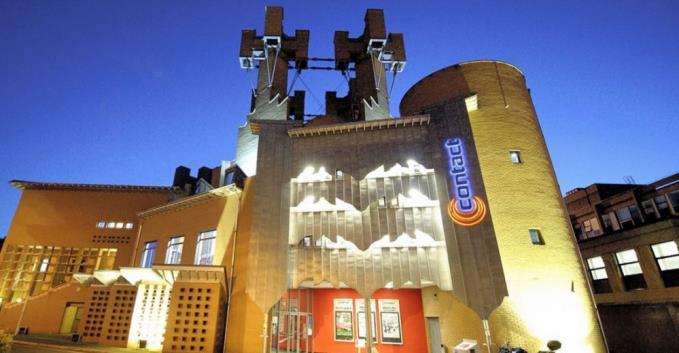IMAGINE a city where your every movement is tracked and analysed. Your route to work is logged, your health monitored and you are even encouraged to compete with your neighbour over who has the best stats. How is this vision of the future so different to Facebook knowing about your friends, Amazon your reading habits or your FitBit knowing how much exercise you take?
Well, in one way, not so much – it’s all the analysis of information you give away willingly. The key difference is that all those activities are voluntary and you can opt out at anytime. Once this kind of approach gets integrated into the public sector, we might not have a choice. And the so-called ‘smart city’ is most definitely coming our way.
Unlike previous smart city projects, we can’t look to our European neighbours to give us a cash boost in return for sharing knowledge. We are now on our own
July saw the official launch of CityVerve, the UK’s demonstrator project in Manchester for large-scale deployment of Internet of Things (IoT) technology. The core idea of the Internet of Things is to connect 'things' (i.e. digital devices) to one another to facilitate feedback and communication.
From just two billion objects in 2006 to a projected 200 billion in 2020 (that’s around 26 objects per person), the interconnection of these smart 'things' can provide us with information that can potentially be used to increase the quality of our lives. But the challenge is to use this huge flow of information in a way that makes sense to the end user (that’s you and me).
A city is a system of lots of different systems. The basic premise of the Smart City is that we can massively improve efficiency by getting all our systems to interact with one another. We’ve all had experiences where the sharing of information would have saved time and money.
Think of the times you’ve been to multiple appointments which address basically the same issue because different branches of the NHS don’t seem to talk to one another. How great would it be if this kind of massive inefficiency could be solved, not just within one kind of municipal service, but throughout all services?
That is what the visionaries behind the Smart City movement are hoping for – so to give a simple example, if breathing problems (public health) start to increase in some areas of Manchester due to pollution, traffic flow could be diverted from that area (traffic management) and in the meantime, the tram service could be instantly increased to help cope with any overflow (public transport). All of this is still a long way off of course, but the seeds are being planted right now.
The CityVerve project involves a consortium of over twenty public and private sector organisations*, ranging from SMEs to large global corporates, who over the next two years will design and deliver a series of solutions around the themes of Transport, Energy, Health and Culture, using the latest IoT tech. According to project leaders, the citizens of Manchester should see improved healthcare outcomes, lower environmental impact and more efficient public services. It all sounds quite benignly dull (who could argue with better transport and less disease?) but this civic service is also a gateway to accessing and using what is one of our most sought-after assets: our information.
So, while CityVerve is still in its birthing period there are some questions to be asked and ways in which we can influence its growth. CityVerve is keen on buzzwords such as ‘human-centred design’ and ‘citizen-focused solutions’. The great thing is that means ordinary people get a chance to tell that designers of this new city exactly what we want and we care about.
READ: £10m For Talkative Bus Stops? What Is This 'Internet Of Things'?
For example, there is the question of ownership of all this wonderful information we will produce. The choices we make are transformed into a crop of data that is open to being harvested, tabulated and interpreted by private enterprise and public bodies alike. Succinctly put, everything we do creates a valuable commodity, but will we be the ones to benefit from it?
It’s reasonable to assume that some of this data will be available for purchase by third parties because creating a smart city costs so much money, and selling access would be a very attractive way to recoup expenses. But this is at odds with having an open-data policy which would allow anyone free access to the data produced. This would be invaluable to academic researchers and to the kind of innovative, free-thinking start-up Manchester is hoping to attract.
That’s great in principle, but will the private-sector elements of the consortium feel the same way about sharing this extremely valuable resource as their publically funded counterparts? And if some whizzy app does get invented off the back of our data, should we all get a share in it?
 CityVerve is holding its first community workshop on the 7 of September at Manchester's Contact Theatre
CityVerve is holding its first community workshop on the 7 of September at Manchester's Contact TheatreAnother worry is the privacy and security of our data. As mentioned above, one of the big focal points for the project is healthcare. Obviously this information needs to be private and secure, but this is in direct opposition to making data open and transparent. While the general tendency is the sharing of information across so-called ‘silos’, this is an area that needs to be protected. How will CityVerve box-off health records form the rest of the data flow?
And finally, though CityVerve is just at the beginning, we need to be thinking about what happens at the end of the project. The funding comes from InnovateUK, a government body that is, unsurprisingly, concerned with innovation, but it seems unlikely any more money will come from that source – and by its very nature this needs to be a long-term project. Take the idea that sensors will be installed in street lamps: £10m sounds like a lot until you consider that the current cost of electricity for regular street lighting is £3m per annum on its own – how much extra will sensors dotted all over the city cost? And when that £10m pot runs out, more money will be needed. Sensors aren’t the cheapest of equipment and will need constant maintenance, never mind the IT experts needed to keep the platform for all the data produced running. Will the council be expected to shoulder the expense of upkeep? Unlike previous smart city projects, we can’t look to our European neighbours to give us a cash boost in return for sharing knowledge. We are now on our own.
If any of these questions sparked something with you, whether you are concerned about the privacy of your data or you’ve got an amazing idea you think ought to be incorporated into the CityVerve plans, we encourage you to go to the Community Workshop this Wednesday (7 September). Historically, Manchester is pretty good at this kind of thing. It’s a cradle of revolutions, both technological and cultural. And it’s lead by the people. But being smart isn’t always the same as being wise - so let’s take a moment to reflect as we take the future of our city into our hands.
CityVerve is holding its first community workshop on the 7 of September at Manchester's Contact Theatre. This is your chance to help define some of the goals and indicators of success for CityVerve and to ensure that your community has a voice in shaping the future of Manchester.
Who’s this event for?
- People who run or organise community groups and events
- Representatives of civil society, voluntary and religious groups
- Anyone interested in the role of technology in the delivery and use of public services
What to expect?
- An interactive workshop
- Conversations with CityVerve partners and stakeholders
- The opportunity to shape how success is measured throughout CityVerve’s lifetime
*The CityVerve consortium is made up of:
The full list of consortium includes; Manchester City Council, Cisco Systems, BT Plc, Manchester Science Partnerships Ltd, The University of Manchester, Manchester Metropolitan University, Asset Mapping Limited, Clicks and Links Ltd, Central Manchester University Hospitals NHS, Future Everything CIC, Kiltr Limited, OCF Plc, Ordnance Survey, PrismTech Ltd, Republic of Things Ltd, SatSafe Limited, SAP Ltd, Siemens, Smartgateways Ltd, Sparta Technologies Limited, Spica Technologies Limited, Telensa Limited, Transport for Greater Manchester.
 Powered by Wakelet
Powered by Wakelet












